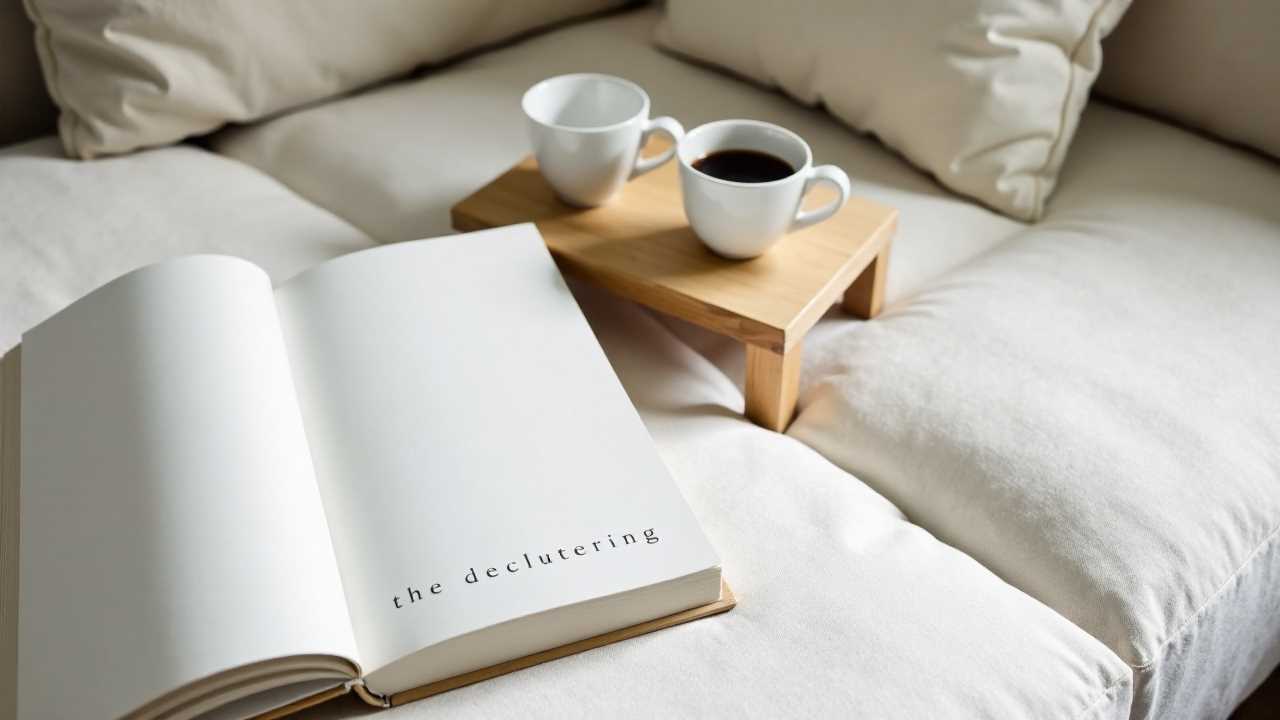
Understanding Minimalist Living
Minimalist living is more than just a trend; it is a lifestyle choice that promotes simplicity and intentionality. By stripping away the excess, we can focus on what truly matters in our lives. This philosophy encourages us to evaluate our possessions, commitments, and even our thoughts, allowing for a more mindful existence. In a world filled with distractions, embracing minimalism can lead to a profound sense of freedom and clarity.
The Power of Simplicity
At the heart of minimalist living lies the principle of simplicity. This concept encourages us to reduce clutter, both physical and mental. By simplifying our surroundings, we create an environment that fosters peace and productivity. A minimalist home is often characterized by clean lines, neutral colors, and a lack of unnecessary items. This aesthetic not only looks appealing but also promotes a sense of calm.
Simplicity extends beyond our physical space. It also involves simplifying our schedules and commitments. By saying no to activities that do not align with our values, we free up time for what truly matters. This intentional approach to life allows us to focus on relationships, personal growth, and experiences that enrich our lives.
Intentionality in Daily Life
Intentionality is a key component of minimalist living. It involves making conscious choices about how we spend our time and resources. When we live intentionally, we prioritize activities and possessions that align with our values and goals. This practice encourages us to reflect on our decisions and consider their impact on our lives.
Incorporating intentionality into our daily routines can be transformative. For instance, instead of mindlessly scrolling through social media, we can choose to engage in activities that promote personal growth, such as reading or exercising. By being deliberate in our choices, we cultivate a lifestyle that reflects our true selves.
The Role of Mindfulness
Mindfulness is another essential aspect of minimalist living. This practice encourages us to be present in the moment and fully engage with our surroundings. Mindfulness helps us appreciate the simple joys in life, such as a warm cup of coffee or a walk in nature. By cultivating mindfulness, we can reduce stress and enhance our overall well-being.
In a minimalist lifestyle, mindfulness can be practiced through various techniques, including meditation, journaling, and deep breathing exercises. These practices allow us to connect with our thoughts and emotions, fostering a deeper understanding of ourselves. As we become more mindful, we can make better choices that align with our minimalist values.
Commitment to Sustainability
Minimalist living is closely tied to the concept of sustainability. By reducing our consumption and focusing on quality over quantity, we can minimize our environmental impact. This commitment to sustainability encourages us to choose eco-friendly products, support local businesses, and reduce waste.
Sustainable practices can be easily integrated into a minimalist lifestyle. For example, opting for reusable bags, containers, and utensils can significantly reduce plastic waste. Additionally, embracing a plant-based diet or supporting sustainable agriculture can contribute to a healthier planet. By living sustainably, we not only benefit ourselves but also future generations.
The Art of Decluttering
Decluttering is a fundamental practice in minimalist living. It involves assessing our possessions and letting go of items that no longer serve a purpose in our lives. This process can be both liberating and challenging, as it requires us to confront our attachments to material possessions.
To begin decluttering, we can start with one area of our home at a time. For instance, tackling a closet or a room can provide a sense of accomplishment. As we sort through our belongings, we can ask ourselves questions such as: Does this item bring me joy? Do I use it regularly? If the answer is no, it may be time to let it go.
Decluttering not only creates physical space but also mental clarity. As we remove unnecessary items from our lives, we can focus on what truly matters. This process can lead to a more organized and peaceful living environment.
Experiencing Freedom Through Minimalism
One of the most significant benefits of minimalist living is the sense of freedom it provides. By letting go of excess possessions and commitments, we create space for what truly matters. This newfound freedom allows us to pursue our passions, nurture relationships, and engage in meaningful experiences.
Minimalism encourages us to prioritize experiences over material possessions. Instead of accumulating items, we can invest in travel, hobbies, and personal development. This shift in focus can lead to a more fulfilling and enriched life.
Creating a Minimalist Mindset
Adopting a minimalist mindset requires a shift in perspective. It involves recognizing that happiness does not stem from material possessions but from meaningful connections and experiences. To cultivate this mindset, we can practice gratitude and mindfulness daily.
Gratitude helps us appreciate what we have rather than longing for more. By focusing on the positives in our lives, we can foster contentment and joy. Mindfulness, as previously discussed, allows us to be present and fully engaged in our experiences.
The Journey Toward Minimalist Living
Embracing minimalist living is a journey that requires commitment and self-reflection. By prioritizing simplicity, intentionality, mindfulness, sustainability, and decluttering, we can create a lifestyle that reflects our values and aspirations. The freedom that comes from minimalism allows us to focus on what truly matters, leading to a more fulfilling and enriched life.
As we navigate this journey, let us remember that minimalism is not about deprivation but rather about making room for abundance in our lives. Through intentional choices and mindful practices, we can cultivate a lifestyle that resonates with our true selves.
 Business & FinanceHealth & MedicineTechnologyLifestyle & CultureScience & EnvironmentWorld NewsPrivacy PolicyTerms And Conditions
Business & FinanceHealth & MedicineTechnologyLifestyle & CultureScience & EnvironmentWorld NewsPrivacy PolicyTerms And Conditions
